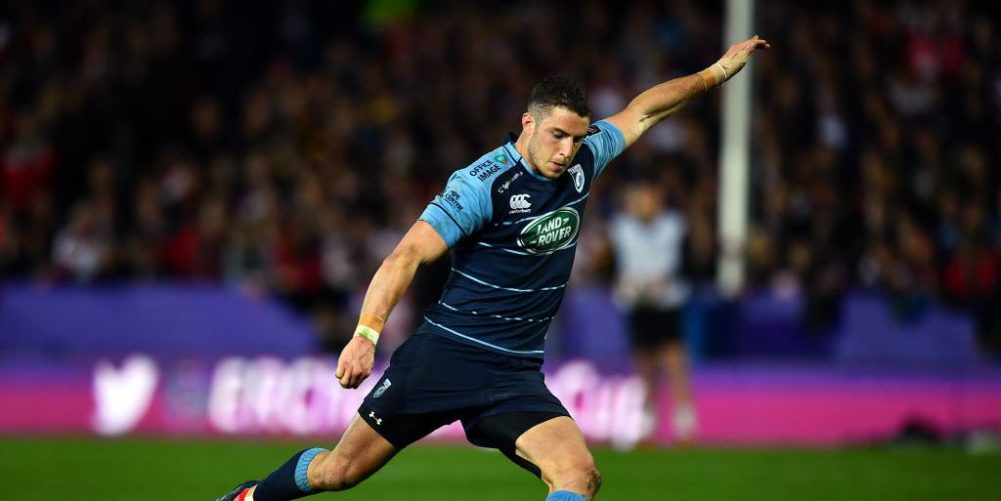Sir Bill Beaumont's proposal that a host of South Pacific warriors be repatriated ‘for one last hoorah' will have gone down like a lead balloon in a corner of West Wales.
In electioneering mode for the votes to secure a second term as chairman of World Rugby, England's venerable Grand Slam captain raised the prospect of a new law allowing Manu Tuilagi, Charles Piutau, the Vunipola brothers et al to play Test rugby for their native islands.
The idea, made on-the-stump, would allow them to switch allegiance ‘late in their careers', a condition which some would interpret as a euphemism for ‘once we've got the best years out of them'. Never mind, it would be ‘one last hoorah'.
Meanwhile down Llanelli way at Hendy, a village famous for its rugby players, Steven Shingler would have been less than impressed, with good reason. “One last hoorah?'' he may well have thought to himself. “I didn't get a first hoorah, never mind a last one.''
In the endless fog of confusion created by contradictory rulings on national eligibility, peasoupers of the kind not seen since the smog of 1950s London, Shingler's case remains shrouded by intrigue. He is the only rugby player I know to have been picked by two countries and denied the chance of playing for either.
The younger brother of Wales flanker Aaron Shingler, he had been fourth choice stand-off for the Scarlets behind Stephen Jones, Rhys Priestland and Dan Newton when an Anglo-Welsh Cup tie against London Irish offered him a rare start.
Shingler made such an impression that the Exiles signed him. His impact on the English Premiership heightened interest among Scotland's recruiting agents, aware that his Scottish mother Jeanette, from Dumfries gave him a clear run all the way to Murrayfield.
Wheels within wheels began turning. Mike Catt, then running the backs at London Irish, spoke highly of him and told Andy Robinson so when his old Bath team-mate asked for his opinion.
Scotland having failed to make the last eight at the World Cup a few months earlier, their head coach needed something different for the start of the 2012 Six Nations. As part of that plan, Shingler had been pencilled in to start at inside-centre in the opening match, England in Edinburgh.
“We had been watching him for a long time,'' Robinson said. “We believed he was eligible and Steven believed he was eligible. We had done all the due diligence. We needed a spark after the World Cup and I was sure Steven would help provide it.
“I had to know whether he wanted to play for Scotland. I told him about the negatives as I did with every player, of the risks that he might end up only playing twice. He made it clear he wanted to play for Scotland.''
Robinson named him for Six Nations duty whereupon Wales lodged a formal complaint with World Rugby claiming that Shingler was ineligible because he had played for Wales against France at U20 level the previous year.
Before that match the Welsh Rugby Union had asked their squad to sign a form committing their Test futures to Wales and nobody else. Shingler refused to sign, preferring to keep all options open.
World Rugby's ruling that he had been ‘captured' by Wales and was therefore ineligible to play for anyone else shocked the player and Scotland. One year later Wales, with their best on Lions duty in Australia, chose Shingler in a training squad for two Tests in Japan but played him in neither.
That was as close as he got to a cap. Ironically, Wales' current team includes a pair capped by England at U20 level, Ross Moriarty and Nick Tompkins. Nobody at World Rugby raised any objection.
Robinson clearly sees Shingler as a victim of an injustice, describing the decision to block his move as “pretty distasteful on all fronts. It wasn't as if we had gone into Wales and taken one of their players. Steve had left Wales. He's a lovely lad and I really feel for him.''
The place Scotland had reserved for him was never on offer in Wales. A lengthy stint at Cardiff Blues finished with Shingler, now at Ealing Trailfinders, a long way down the national stand-off ratings.
That the WRU played hard-ball when they might have shown some compassion and given the then 20-year-old their blessing to follow his dream does them no credit.


























